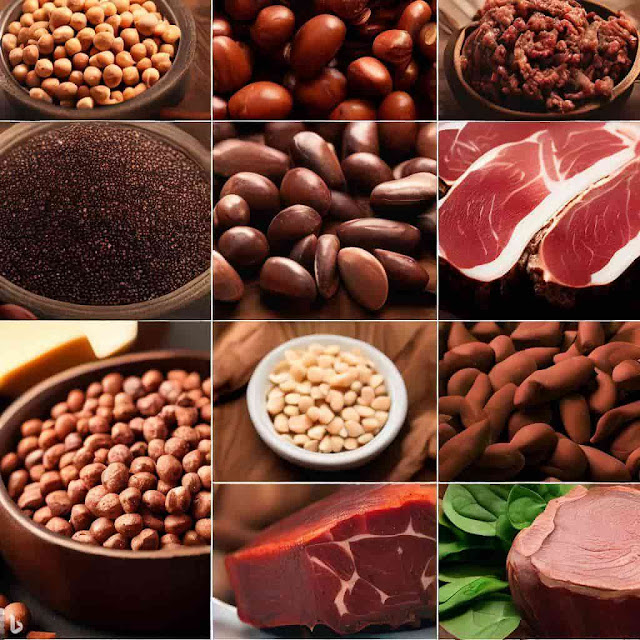Foods To Eat For A Healthy Uterus
Maintaining a healthy diet is important for all aspects of our health, including reproductive health. While diet alone cannot guarantee a healthy uterus, research has shown that it plays a vital role in promoting reproductive health and preventing certain conditions. In this article, we will explore the relationship between diet and the health of the uterus, as well as identify key nutrients and foods that may help in keeping the uterus healthy.
Importance of diet for a healthy uterus
Diet can influence the reproductive system in various ways. For example, it can affect hormone levels, ovulation, and menstrual cycles. Studies have shown that obesity, for instance, can disrupt hormone balance, leading to irregular periods and infertility. Similarly, a diet low in certain nutrients can increase the risk of uterine fibroids, endometriosis, and other reproductive health issues.
Relationship between diet and reproductive health
A diet that is rich in vitamins, minerals, and other nutrients can help promote the health of the uterus. Some of the key nutrients that are important for a healthy uterus include iron, folate, vitamin B12, vitamin D, vitamin E, omega-3 fatty acids, and fiber.
Nutrients crucial for a healthy uterus
Iron
Iron is an essential mineral for reproductive health as it helps carry oxygen to the body's cells. It also plays a role in the production of blood, which is necessary during pregnancy. A lack of iron can lead to anemia, which can cause fatigue and excessive bleeding during menstruation.
Folate
Folate, also known as Vitamin B9, is essential during pregnancy as it helps prevent birth defects of the brain and spine. It also supports healthy ovulation and prevents infertility.
Vitamin B12
Vitamin B12 is important for a healthy nervous system and can help boost fertility. It also supports the growth of the embryo during pregnancy.
Vitamin D
Vitamin D helps the body absorb calcium, which is important for maintaining strong bones. It also promotes healthy ovulation and can help reduce the risk of infertility.
Vitamin E
Vitamin E is a powerful antioxidant that helps protect the uterus from damage from free radicals. It also supports healthy hormones during the menstrual cycle.
Omega-3 fatty acids
Omega-3 fatty acids are important for healthy hormone levels and can help reduce inflammation in the body. They also support healthy egg development and uterine lining during pregnancy.
Fiber
Fiber plays an important role in digestion and can help regulate bowel movements. It can also reduce the risk of certain cancers, including uterine cancer.
Foods to eat for a healthy uterus
Iron-rich foods
• Spinach
• Lentils
• Red meat
• Dark chocolate
• Tofu
• Cashews
Folate-rich foods
• Leafy greens
• Avocado
• Asparagus
• Citrus fruits
• Beans
Vitamin B12-rich foods
• Fish
• Eggs
• Chicken
• Fortified cereals
Vitamin D-rich foods
• Fatty fish
• Egg yolk
• Mushrooms
• Fortified foods
Vitamin E-rich foods
• Almonds
• Avocado
• Sunflower seeds
• Spinach
• Olive oil
Omega-3 fatty acid-rich foods
• Fatty fish
• Flax seeds
• Chia seeds
• Walnuts
• Soybean oil
High-fiber foods
• Whole grains
• Beans
• Vegetables
•Fruits
• Nuts
Other foods and drinks for a healthy uterus
Green tea
Green tea contains antioxidants and can help reduce inflammation. It also assist in combating hormonal imbalances, which commonly affect fertility.
Water
Staying hydrated helps maintain healthy cervical mucus and can help regulate menstrual cycles.
Foods and drinks to avoid for a healthy uterus
Alcohol
Excessive drinking can disrupt hormone balance, leading to irregular periods and infertility.
Caffeine
High caffeine intake can lead to a lower chance of conceiving and can also cause irregular periods.
Processed foods
Many processed foods contain high levels of sugar, unhealthy fats, and artificial preservatives that can interfere with healthy hormone levels.
High-fat dairy products
High-fat dairy products such as cheese and whole milk have been linked to infertility in some studies.
Sugar
Consuming too much excess sugar can throw your hormones off balance and may increase the risk of endometriosis.
Conclusion
By maintaining a healthy diet that includes a variety of nutrient-dense foods, we can increase our chances of achieving optimal reproductive health. While diet alone cannot guarantee a healthy uterus, it certainly plays a key role in supporting overall reproductive health.
FAQs
Can diet affect my menstrual cycle?
Yes, research shows that diet can influence certain aspects of the menstrual cycle, including the length and intensity of menstrual periods.
Can a healthy diet prevent uterine fibroids?
While diet alone cannot prevent uterine fibroids, studies have shown that a diet rich in fruits, vegetables, and whole grains that is low in red meat and high-fat dairy may help reduce the risk of developing fibroids.
Is it necessary to take supplements in addition to eating a healthy diet for a healthy uterus?
It is always best to speak with your healthcare provider before starting any supplements. While many key nutrients can be obtained through a healthy diet, some people may have deficiencies that need to be addressed through supplements.

.jpg)







.jpg)




0 Comments